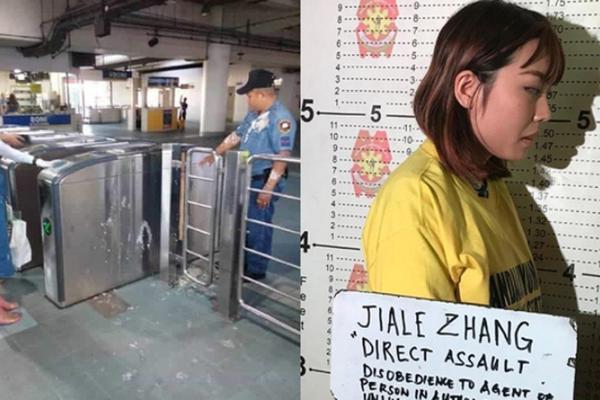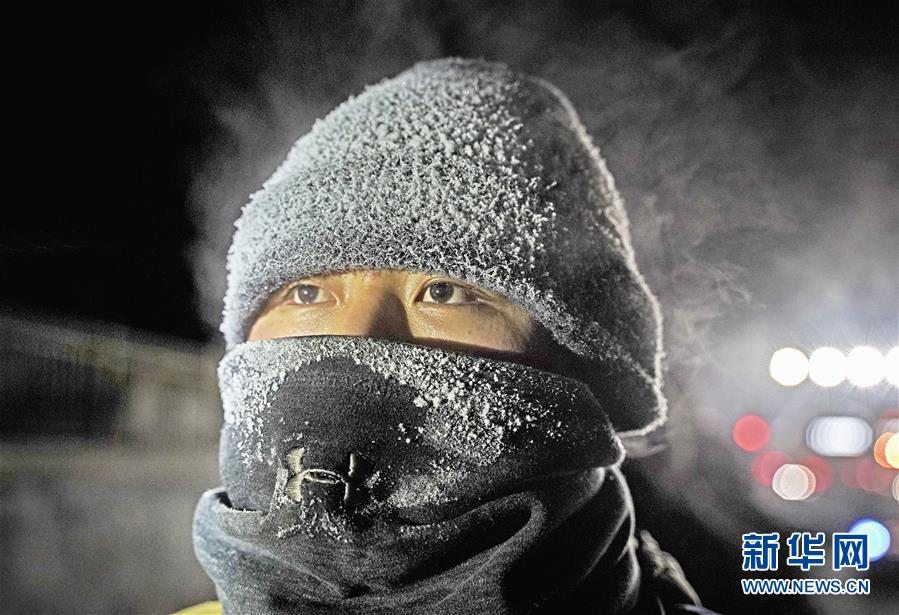Force Multiplier
ICE local collaboration agreements ensnare immigrants and citizens alike Florida Highway Patrol makes a traffic stop. | Rusty Clark
Florida Highway Patrol makes a traffic stop. | Rusty Clark o
r
d
F
a
c
t
o
r
y
In the middle of last month, a Florida state trooper pulled over a car after it crossed the state border from Georgia, allegedly for speeding. The officer arrested all three men inside, including a twenty-year-old U.S. citizen passenger named Juan Carlos Lopez-Gomez—and promptly booked them under the state’s recently passed, and subsequently blocked, law barring undocumented people from entering Florida.
The trooper, as the Florida Phoenixreported, had noted in his arrest report that Lopez-Gomez was in the country illegally—discounting the young man’s Real ID and ignoring a family member of the car’s driver, who had arrived at the scene and attested to Lopez-Gomez’s citizenship. Lopez-Gomez remained in jail for the next twenty-four hours, on “hold” for Immigration and Customs Enforcement (ICE), even after a county judge personally verified his birth certificate and dropped the charges.
“So, you know, it was this Kafkaesque, The Trialmoment: Juan Carlos being arrested for no crime by a nebulous U.S. authority, which he has no way of appealing to,” said Thomas Kennedy of the Florida Immigrant Coalition, who was present at the courthouse that day. It was, he added, an “insane ruling by the judge, completely violating this man’s Fourth Amendment rights, surrendering jurisdiction of a U.S. citizen over to ICE.”
That evening, ICE called the young man’s mother and, away from the crowd of protesters who had gathered to protest Lopez-Gomez’s detention, handed her son over at a nearby Wendy’s. The family is now preparing to sue.
Cases like Lopez-Gomez’s may become the new normal as “more people are swept into the juggernaut—the frenzy of deportation energy” that the Trump administration has set into motion, said Lena Graber, senior staff attorney at the Immigrant Legal Resource Center (ILRC). Even if national deportation numbers have so far fallen short of Trump’s goals, the enforcement arms of the Department of Homeland Security have been racking up arrests and filling up detention centers to capacity.
The federal crackdown on immigration has become a granular, street-level enterprise in every corner of the state.
To assist, the administration has pulled in thousands of agents from other federal law enforcement agencies, who typically go after drug traffickers, child abusers, and bombers, despite their meager training in immigration law. The people disproportionately affected by this reconfiguration of government functions are, of course, immigrants—both with and without documents. But U.S. citizens won’t be immune. Already, some have been caught in the machinery: in Arizona, a citizen was wrongfully arrested by border agents; in Colorado, where drug enforcement agents conducted (and later posted videos of) a splashy raid at an underground nightclub, more may have been scooped up. In another case, ICE and other federal agents raided an Oklahoma City home and traumatized the U.S.-citizen mother and her daughters who lived there.
But the enforcement landscape in Florida is unlike any other in the country. Under the stewardship of Governor Ron DeSantis, local law enforcement agreements to collaborate with ICE have exploded; the federal crackdown on immigration has become a granular, street-level enterprise in every corner of the state. DeSantis started signing anti-immigrant legislation soon after taking office in 2019—the latest bills, just this February, were signed less than an hour after passing the Florida House and Senate. These laws have, among other things, expanded the 287(g) program, which deputizes local law enforcement to do ICE’s work.
Immigration is, and always has been, under the purview of the federal government. Traditionally a civil area of law, it has become increasingly intertwined with the criminal justice system through incremental legislation over the last few decades, a convergence often referred to as “crimmigration.” The effective result of this is a system that stacks immigration and criminal penalties for immigrants, where traffic stops can funnel a person into the deportation pipeline. And that’s what ICE, despite its ever-expanding coffers, needs. It has always relied on local law enforcement to help it find its targets; 287(g) is the fulcrum of that relationship.
Back in 2019, the American Civil Liberties Union warned that this program had already resulted in the wrongful detentions of “dozens—if not hundreds” of U.S. citizens in Miami-Dade county, at least one of whom went on to sue the local government, as did another citizen detained in the Florida Keys. Nevertheless, as of the end of April, 181 participants in Florida have signed up. That includes every single county jail, various state agencies (including the?Florida Fish and Wildlife Conservation Commission, the Florida State Guard, and of course, the Highway Patrol), several municipalities, and even a handful of public universities. Well over a hundred agencies have jumped on board just this year for the most extreme iteration of the 287(g) partnership: the “task force” model, where beat cops can patrol the streets, cosplaying as ICE and demanding to see papers.
The people they are likely to target are the ones whom they believe don’t belong, based on their skin color, accent, inability to speak English, or some other trait. This has been well-documented by rights groups: the UN’s racial justice experts previously criticized the Biden administration for not discontinuing 287(g) given that it “indirectly promot[es] racial profiling.” If questioned, proving citizenship isn’t always so straightforward. Millions of Americans do not have ready access to documents like a passport, birth certificate, or naturalization papers for a variety of reasons, and people of color are overrepresented in this group. And, as Lopez-Gomez’s case shows, having those papers in hand may not always serve to immediately alleviate the threat of arrest and detention.
DeSantis and his attorney general are “bullying or strong-arming local governments into entering into these agreements through not-so-veiled threats of removal from office if they don’t comply,” said Abdelilah Skhir of ACLU Florida. “But the fact remains that many of these governments that are entering into these agreements are not required to.” At its current stage, the scale and scope of Florida’s 287(g) program “pretty much dwarfs” the last ten years’ worth of nationwide enforcement under these laws, said Daniel Stageman, director of research at the John Jay College of Criminal Justice, who has long tracked 287(g) agreements. The next year or two will reveal the full scope of the impact. “If you’re looking for where some of the most authoritarian practices are going to happen, you’re looking in the right place,” Stageman said of Florida.
Under the last Trump administration, the number of sheriffs who signed these agreements had also swelled, as did concerns about the lack of training and oversight over the program. And while ICE had arrested and detained hundreds of U.S. citizens even before Trump took office for the first time, the numbers of U.S. citizens it actually deported started to inch up in 2017, in tandem with the growth of collaboration agreements. But at the time, the types of agreements were still restricted: local police could execute ICE’s administrative warrants (i.e., those not signed by a judge) or hold people booked into jail for ICE after they posted bond, but the notorious task force model, discontinued in the Obama era, had not yet been brought back.?
That model had fallen out of favor in the first place because of what it looked like in practice—most notoriously, in Maricopa County, Arizona, under Sheriff Joe Arpaio, who focused “on the spectacle of cruelty in a very Trumpy way,” said Lena Graber of ILRC. Arpaio and his team of deputies conducted worksite raids, set up traffic patrols profiling Latinos (for which courts later convicted him), and set up a jail he proudly called a “concentration camp.” He was later held in contempt for defying court orders telling him to stop—though was eventually pardoned by Trump. Arpaio’s egregious execution of 287(g) ultimately cost millions of taxpayer dollars in legal fines and penalties.
Even without the task force model, 287(g) has invited controversy. A 2011 Migration Policy Institute study of various 287(g) counties found that the agreements led to local police targeting low-level traffic offenders, gave rise to complaints about profiling, and caused “substantial negative community impacts”—including forcing immigrant communities to withdraw from public life and decline to report crime. More recent studies back these conclusions up. Costs have compounded alongside these excesses: several counties were sued over the program in civil rights complaints.
The ardent support of state and local police in Florida makes Trump’s mass deportation fantasies much more likely to be realized.
Regardless, when Trump took office this year, he doubled down on the program, signaling its importance in an executive order. His administration has deemed the task force model a “force multiplier.” According to the “What’s in it for your law enforcement agency?” section of the government’s website on 287(g), the biggest benefit of the program is that it will help “you keep your community safe from potentially dangerous criminal aliens.” The website also notes that only the training—which could now be as little as a forty-hour online course—would be covered. While Trump’s “border czar” Tom Homan promised a national conference of sheriffs that the federal government would defend local governments that get hit with lawsuits, rights groups don’t think that’s legally feasible. Ultimately, if lawsuits pile up, local governments may need to pay out of their own coffers.
Some of Arizona’s sheriffs do not seem keen to repeat the risks that come with going down the Arpaio route, and state level legislation to increase collaboration was vetoed by Governor Katie Hobbs. But that makes them something of an outlier in the South: the Texas Senate just advanced a bill to mandate 287(g) for counties with over one hundred thousand residents, and Georgia passed a similar state law last year. Florida’s Highway Patrol was the first agency in the nation to implement the task force model this year.
Florida is Trump’s platonic ideal—a model for the rest of America. According to the ACLU, as of April 18, the troopers have arrested at least fifteen people under the state law that Lopez-Gomez was booked under, the one that prohibits undocumented people from entering the state, after a federal judge paused it. The attorney general appears to be backing them up, a move that may result in a contempt of court finding. Troopers also helped the feds conduct a six-day operation called Tidal Wave in which over 1,100 potentially undocumented people were arrested, the Miami Heraldreported, but the administration has so far only released the names of ten detainees, citing privacy concerns. ICE has already admitted to building what a Florida Democratic lawmaker called a “tent city,” much like Arpaio once did, that will likely wind up housing people arrested in these sweeps.
The ardent support of state and local police in Florida makes Trump’s mass deportation fantasies much more likely to be realized. It also boosts the propensity for collateral damage—not just because U.S. citizens will be arrested, but because of the processes and precedent these arrests will consolidate. “We have a crisis of due process in this country where we have [an attitude of]: ‘enforce first and ask questions later,’ and ‘detain and deport first,’ and ‘ignore the contrary evidence that’s in your face,’” said Graber. “That is so damaging to our civil rights and our democracy at large.”





![Hoax оказалась сильнее Imago [HYBRD] в бою второго дивизиона BetBoom Битва Чемпионов 2025](http://n.sinaimg.cn/news/transform/200/w600h400/20180612/zhp0-hcufqih5624663.jpg)












